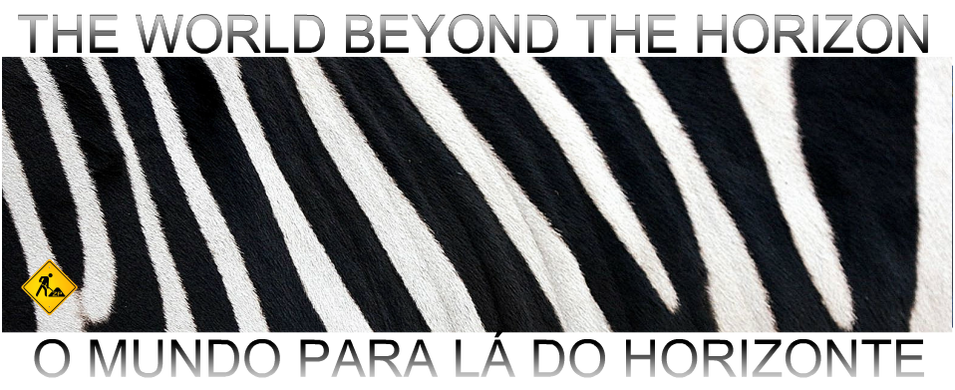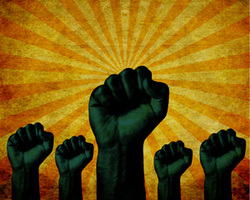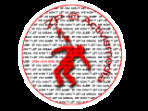19 December 2013
by John Pilger
In the late 1960s, I was given an usual assignment by the London Daily Mirror's editor in chief, Hugh Cudlipp. I was to return to my homeland, Australia, and "discover what lies behind the sunny face". The Mirror had been an indefatigable campaigner against apartheid in South Africa, where I had reported from behind the "sunny face". As an
Australian, I had been welcomed into this bastion of white supremacy. "We admire
you Aussies," people would say. "You know how to deal with your blacks."
I was offended, of course, but I also knew that only the Indian Ocean separated the racial attitudes of the two colonial nations. What I was not aware of was how the similarity caused such suffering among the original people of my own country. Growing up, my school books had made clear, to quote one historian: "We are civilised, and they are not". I remember how a few talented Aboriginal Rugby League players were allowed their glory as long as they never mentioned their people. Eddie Gilbert, the great Aboriginal cricketer, the man who bowled Don Bradman for a duck, was to be prevented from playing again. That was not untypical.
In 1969, I flew to Alice Springs in the red heart of Australia and met Charlie Perkins. At a time when Aboriginal people were not even counted in the census - unlike the sheep - Charlie was only the second Aborigine to get a university degree. He had made good use of this distinction by leading "freedom rides" into racially segregated towns in the
outback of New South Wales. He got the idea from the freedom riders who went
into the Deep South of the United States.
We hired an old Ford, picked up Charlie's mother Hetti, an elder of the Aranda people, and headed for what Charlie described as "hell". This was Jay Creek, a "native reserve", where hundreds of Aboriginal people were corralled in conditions I had seen in Africa and India. One outside tap trickled brown; there was no sanitation; the food, or "rations", was starch and sugar. The children had stick-thin legs and the
distended bellies of malnutrition.
What struck me was the number of grieving mothers and grandmothers - bereft at the theft of children by the police and "welfare" authorities who, for years, had taken away those infants with lighter skin. The policy was "assimilation". Today, this has changed only in name and rationale.
The boys would end up working on white-run farms, the girls as servants in middle-class homes. This was undeclared slave labour. They were known as the Stolen Generation. Hetti Perkins told me that when Charlie was an infant she had kept him tied to her back, and would hide whenever she heard the hoofs of the police horses. "They didn't get him," she said, with pride.
In 2008, Prime Minister Kevin Rudd apologised for this crime against humanity. Older Aboriginal people were grateful; they believed that Australia's first people - the most enduring human presence on earth - might finally receive the justice and recognition they had been denied for 220 years.
What few of them heard was the postscript to Rudd's apology. "I want to be blunt about this," he said. "There will be no compensation." That 100,000 people deeply wronged and scarred by vicious racism - the product of a form of the eugenics movement with its links to fascism - would be given no opportunity to materially restore their lives was shocking, though not surprising. Most governments in Canberra, conservative or Labor, have insinuated that the First Australians are to blame for their suffering and poverty.
When the Labor government in the 1980s promised "full restitution" and land rights, the powerful mining lobby went on the attack, spending millions campaigning on the theme that "the blacks" would "take over your beaches and barbies". The government capitulated, even though the lie was farcical; Aboriginal people comprise barely three per cent of the Australian population.
Today, Aboriginal children are again being stolen from their families. The bureaucratic words are "removed" for "child protection". By July 2012, there were 13,299 Aboriginal children in institutions or handed over to white families. Today, the theft of these
children is now higher than at any time during the last century. I have interviewed numerous specialists in child care who regard this as a second stolen generation. "Many of the kids never see their mothers and communities again," Olga Havnen, the author of a report for the Northern Territory government, told me. "In the Northern Territory, $80 million was spent on surveillance and removing kids, and less than $500,000 on supporting these impoverished families. Families are often given no warning and have no idea where their children are being taken. The reason given is neglect - which means poverty. This is destroying Aboriginal culture and is racist. If apartheid South Africa had done this, there would have been an uproar."
In the town of Wilcannia, New South Wales, the life expectancy of Aborigines is 37 - lower than the Central African Republic, perhaps the poorest country on earth, currently racked by civil war. Wilcannia's other distinction is that the Cuban government runs a literacy programme there, teaching young Aboriginal children to read and write. This is what the Cubans are famous for - in the world's poorest countries. Australia is one of the world's richest countries.
I filmed similar conditions 28 years ago when I made my first film about indigenous Australia, The Secret Country. Vince Forrester, an Aboriginal elder I interviewed then, appears in my new film, Utopia. He guided me through a house in Mutitjulu where 32 people lived, mostly children, many of them suffering from otitis media, an infectious,
entirely preventable disease that impairs hearing and speech. "Seventy per cent
of the children in this house are partially deaf," he said. Turning straight to my camera, he said, "Australians, this is what we call an abuse of human rights."
The majority of Australians are rarely confronted with their nation's dirtiest secret. In 2009, the respected United Nations Special Rapporteur, Professor James Anaya, witnessed similar conditions and described government "intervention" policies as racist. The then Minister for Indigenous Health, Tony Abbott, told him to "get a life" and stop listening to "the victim brigade". Abbott is now the prime minister of Australia.
In Western Australia, minerals are being dug up from Aboriginal land and shipped to China for a profit of a billion dollars a week. In this, the richest, "booming" state, the prisons bulge with stricken Aboriginal people, including juveniles whose mothers stand at the prison gates, pleading for their release. The incarceration of black Australians
here is eight times that of black South Africans during the last decade of apartheid.
When Nelson Mandela was buried this week, his struggle against apartheid was duly celebrated in Australia, though the irony was missing. Apartheid was defeated largely by a global campaign from which the South African regime never recovered. Similar opprobrium has seldom found its mark in Australia, principally because the Aboriginal population is so small and Australian governments have been successful in dividing and co-opting a disparate leadership with gestures and vacuous promises. That may well be changing. A resistance is growing, yet again, in the Aboriginal heartland, especially among the young. Unlike the US, Canada and New Zealand, which have made treaties with their first people, Australia has offered gestures often wrapped in the law. However, in the 21st century the outside world is starting to pay attention. The specter of Mandela's South Africa is a warning.
This article first appeared in the London Daily Mirror. John Pilger's documentary, Utopia, is broadcast on ITV in Britain on 19 December at 10.35pm, and will be launched in Australia in January.
Follow John Pilger on twitter@johnpilger
| Mandela is gone, but apartheid is alive and well in Australia.docx |




 RSS Feed
RSS Feed
